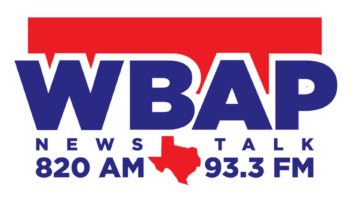Radio’s feeling increasing pressure from Senate Democrats to bend on the performance rights issue. In a Judiciary Committee hearing on the issue, several times Chairman Patrick Leahy of Vermont and Dianne Feinstein of California — both Democrats — said it’s time for all parties to talk about the issue; they’re ready to move legislation.
Feinstein, who introduced a bill in the last Congress to levy such a fee on terrestrial radio to compensate artists for airplay, said “We need to have people willing to move forward” and to reconcile concerns.
Leahy said “Radio uses someone else’s property without paying. That’s inconsistent with our other intellectual property laws.” Stressing that “This is not to beat up on NAB,” he said it’s time for all interested parties to talk about the issue.
Both NAB Joint Board Chairman Steve Newberry, who’s also President/CEO of Commonwealth Broadcasting, a 23-station group of small market facilities, and Jim Winston, executive director and general counsel for the National Association of Black Owned Broadcasters, said levying a new fee on radio stations in this economy will devastate radio.
Newberry, who began station ownership at 21, said “I’ve never seen the economic pain that radio is currently experiencing” with publicly traded companies reporting revenues down between 20% and 25%.
According to MusicFirst, a coalition of record labels and artists that supports the bill, more than three-quarters of nearly 9,000 commercial music stations would pay no more than $5,000 per year in performance fees and the smallest stations would pay $500 per year.
The value of the promotion that radio gives to artists is hard to quantify, but large, Newberry said, showing a stack of paper that he said represented more than 9,000 e-mails and 755 phone calls that one station in Salt Lake City, Utah, received over the course of one year from record labels.
In ads NAB has running in key Capitol Hill papers, the copy reads: “Radio is the number one way listeners discover new music and new artists. This free promotion translates to billions of dollars each year in music, concert ticket and merchandise sales for labels and their performers.”
Winston said “broadcasting has consistently been portrayed as [an industry] that makes fat profits. In minority broadcasting, there are no fat profits to skim.”
Both Winston and Newberry ticked off a list of stations that have had to lay off employees due to declining profits. Newberry said radio does compensate ASCAP, BMI and SESAC for copyrighted songs because composers are less known than artists and have fewer avenues for compensation than artists do.
Artist Sheila E., testifying for MusicFirst, the coalition that includes record labels pushing the performance fee for radio stations, said the House version adjusts the fee to $500 per year for small market stations, or about $1.37 a day. “I don’t think it’s fair that radio uses music I performed on and not pay me. It’s fair for small stations to pay a small fee of $500 for a year. You’ve got to be kidding. I don’t understand the logic to say they can’t pay this.”
In the House, meanwhile, we reported recently that 22 Democrats have asked congressional leaders not to let a vote occur on the Performance Rights Act until more is known about its impact on radio stations and 246 House members support a resolution opposing the effort to levy a performance fee on radio.










